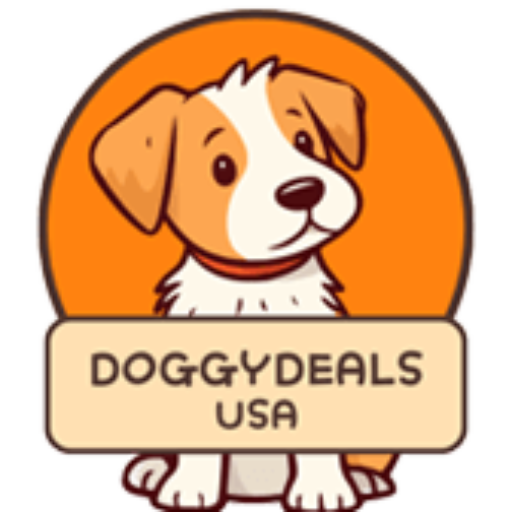Introduction: Understanding Dog Food Recall and Pet Safety
Among the pet owners, the healthiness of our furry friends is one of the important things that needs to be taken care of. Feeding a pet quality and safe food is one of the top priorities while taking care of them. The truth is, some pet foods, such as popular brands like Blue Buffalo, have been recalled because of health threats. There can be several reasons for these recalls, ranging from contamination with harmful substances, bacteria, or even toxic ingredients.
Contents this article, we should also examine the Blue Buffalo dog food recall, the common perpetrator foods for dogs, and the foods that are poisonous to dogs. Finally, we will explore the FDA safety standards and the importance of these standards with both cat and dog food associated with possible H5N1 exposure. Here are some closer looks at these issues to help protect your pets.
Blue Buffalo Dog Food Recalls
Blue Buffalo is among the more popular dog foods out there, and a well-known brand in the pet food space. Nonetheless, in the past few years, the company has recalled many of its various lines for several reasons, including contamination concerns, harmful components, and potential illness. When a manufacturer realizes that a product is unsafe for pets, it issues a food recall happens very often and is concerning.
What Should Pet Owners Do During a Food Recall?
If you find that your purchased Blue Buffalo food was under a recall, you should discontinue feeding it to your fur baby right away. It is also important to verify the food’s lot number and expiration date and to return or discard the food based on instructions from the recall company.
If your dog has eaten any of the recalled food, be sure to call your vet. Watch for signs such as vomiting, diarrhea, being overly lethargic, and any other behavior that deviates from the norm that would suggest your pet may not be well
Dangerous Foods for Dogs
Just like good pet parents, we should also be informed of the foods not safe for dogs. While these foods aren’t always classified as bad, they can be dangerous when eaten by your dog! Examples of the worst food for dogs include some of the most dangerous foods for dogs:
Chocolate
Chocolate (especially dark chocolate) contains theobromine, which can be poisonous to your dog. Since chocolate is toxic to dogs, even in small amounts, they can start vomiting/diarrhea, have high heart rates, seizures, and even die.
Grapes and Raisins
The exact reason is unknown, but grapes and raisins can lead to kidney failure in dogs. Just a tiny amount can cause vomiting, lethargy, and decreased appetite.
Onions and Garlic
Allium family, such as onions and garlic, contains compounds that can damage a dog’s red blood cells, causing anemia. If it were poisoned, it would show symptoms like weakness, lethargy, and a decrease in appetite.
Xylitol (Artificial Sweetener)
Xylitol, an ingredient in certain sugar-free gum, candies, and baked goods, is severely toxic to dogs. Even in small quantities, it stimulates a quick release of insulin, which leads to hypoglycemia (low blood sugar), seizures, liver failure, or death.
Alcohol
Any sip of alcohol is toxic to dogs. Signs of alcohol poisoning include throwing up, diarrhoea, breathing trouble, or in worst cases, coma or even death.
Avocado
Avocado has a compound known as persin that can be harmful to dogs. Even though a small amount is not really dangerous, big doses can lead to symptoms as vomiting and diarrhea.
Foods Poisonous to Dogs
Along with the foods above, several different familiar foods and ingredients can be toxic to your dog. Make sure that these are not anywhere near your pet, and ensure that anyone else living in the home is also aware of the dangers they pose!! Here are some more examples:
Macadamia Nuts
While the specific degenerative mechanism is not well understood, macadamia nuts are extremely toxic to dogs. Eating these nuts produces weakness, tremors, fever, and vomiting.
Caffeine
Coffee, tea, energy drinks, and chocolate contain a substance called caffeine, which is another thing that is lethal to dogs. Symptoms occur like a fast or racing heartbeat, muscle trembling, trouble breathing, increased arousal, and if the Body can not handle such high amounts of stress, it can go into system-wide failure and death.
Raw Dough
Dough, particularly if it is yeast-based, can cause a dog to bloat. This can lead to a bloated stomach, pain, and even life-threatening conditions such as gastric torsion or bloating.
Bone Marrow
Not just the bone itself can be a risk, and the bone marrow substance, which is to be found within the bone, can choke you or cause intestinal obstruction or even perforated intestines. Always
Cat and Dog Food Safety: H5N1 and FDA Warnings
Of the various factors causing concern related to pet food safety, exposure to harmful pathogens such as the H5N1 (avian flu) is among the highest priorities. It’s uncommon, but some pet foods—especially poultry-based products—have been associated with H5N1 outbreaks.
H5N1 in Dog Food recalls
H5N1 is a virulent avian pathogen (i.e., an infection that usually infects birds) that can cross species and affect other animals, including dogs, cats, and humans. And in more extreme situations, pet owners had worried about their pets consuming decrepit pet food from diseased poultry. The FDA has extensive safety protocols to reduce these risks, but consumers should be aware that, from time to time when there may be suspected outbreaks or recalls.
FDA’s Role in Pet Food Safety
The FDA is responsible for ensuring that pet food products are safe, nutritious, and well-labeled. The FDA takes information from companies like Blue Buffalo and begs companies to keep an eye on the safety of the given merchandise. As for recent recalls, it means that the FDA found a significant risk, such as contamination or poisonous ingredients in a product.
Dog food recalls of pet foods are not limited to only dog food. Cat food – poultry or fish cat food, if they are under suspicion of contamination, contamination will also be the reason for recalls of cat food. Be sure to review pet food brand safety ratings and take care with any warnings from the FDA or other related agencies on food supply that can involve H5N1 or other foodborne pathogens.
Conclusion: Safeguarding Your Pets from Harmful Foods
Know the risks of specific pet food products — that is key for your pup to be healthy and protected. Dog food recalls, such as for Blue Buffalo dog food, and knowledge of harmful ingredients can help you make sure you avoid feeding your dog a harmful food. As pet parents, we need to stay alert and check all of the most recent recalls. Being aware of the dangers of certain culinary foods and by adhering to the safety guidelines of the FDA, you may give your pets the best you will ever possess.
When in doubt, always ask your veterinarian for recommendations of safe and healthy pet food alternatives. It is by being aware of and choosing appropriate foods that ensure your dog’s health and overall well-being.
Frequently Asked Questions (FAQs)
- What is a Blue Buffalo dog food recall?
A Blue Buffalo dog food recall occurs when the company identifies a safety risk in their products, such as contamination or toxic ingredients. Pet owners are advised to stop feeding the recalled food to their pets and return or dispose of it. - What foods are poisonous to dogs?
Some foods that are poisonous to dogs include chocolate, grapes, raisins, onions, garlic, xylitol (an artificial sweetener), alcohol, avocado, macadamia nuts, caffeine, and raw dough. - Is Blue Buffalo dog food safe for my pet?
While Blue Buffalo has had recalls in the past, the brand works closely with the FDA to ensure the safety of its products. Always check for the latest recall updates and consult with your vet if you have concerns. - Can H5N1 affect my dog through food?
H5N1 is a viral infection primarily affecting birds, but it can sometimes be linked to contaminated pet food products, especially those made from poultry. Always monitor any FDA warnings about contaminated pet food. - What should I do if my dog consumes a recalled food?
If your dog has consumed a recalled food, stop feeding it immediately. Contact your veterinarian if your dog shows any signs of illness, such as vomiting or diarrhea, and follow the manufacturer’s instructions for returning or disposing of the product.

